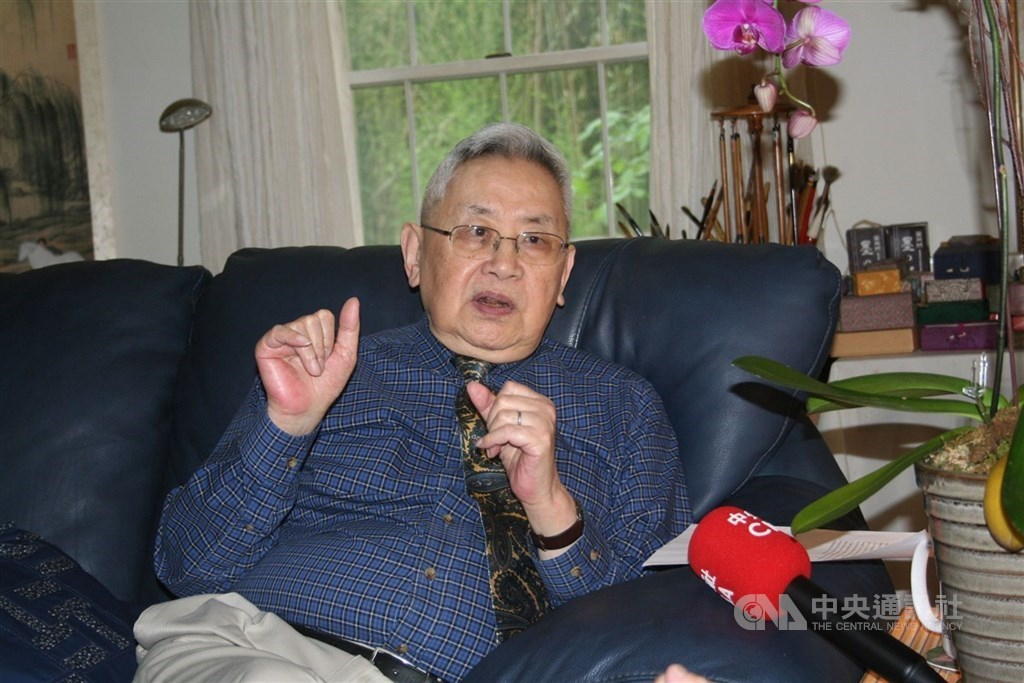In his citation for Yu’s works, then US Librarian of Congress James Billington said: “[Yu’s] impact on the study of Chinese history, thought and culture has reached across many disciplines, time periods and issues, examining in a profound way major questions and deeper truths about human nature.”
Renowned Chinese-American historian and sinologist Yu Ying-shih, who died on Sunday aged 91, leaves behind him a legacy that shed new light on Chinese intellectual and cultural history.
The emeritus Gordon Wu ’58 professor of Chinese Studies at Princeton University passed away in his sleep at his home in the United States, according to Taiwan’s top academic institution Academia Sinica, where he was elected a lifetime member in 1974.
Hailed by fellow academics and the media as the greatest Chinese historian of his time, Yu was known for his sweeping knowledge of China’s past and present, with the Princeton faculty website citing his “mastery of sources for Chinese history and philosophy, his ability to synthesise them on a wide range of topics, and for his advocacy for a new Confucianism”.
He was the first-ever winner of the Taiwan-sponsored Tang Prize in Sinology in 2014 and co-winner in 2006 of the third John W. Kluge Prize – which rewards accomplishments in areas not covered by the Nobel – for lifetime achievement in the study of humanity.
Yu’s works, encompassing more than 100 books and dozens of collections of articles, were read and discussed widely in both the Western and Chinese-speaking worlds.
Initially publishing in English in 1967, Yu came to be widely recognised as a rising scholar in the US.
“While his research was read extensively in the West, Yu soon realised that his work sparked little interest in the East. Hoping that his research will spread beyond the field of Sinology in the West and reach a larger audience, Yu decided to write and publish in Chinese,” wrote the Tang Prize organising committee when it named Yu as the inaugural winner in the Sinology category.
Yu’s first collection of essays, Lishi Yu Sixiang (History and Thought), published in Taiwan in 1976, came to be one of his most influential works, especially in the East.
“This work portrays Yu’s academic philosophy, emphasising the interrelated nature among Chinese literature, history, and philosophy, in addition to covering his thoughts on the similarities and differences between Western and Eastern culture and thought as well as the importance of thought in the study of history,” the prize’s organising committee said.
Known as a vocal critic of China’s Communist Party and staunch supporter of the pro-democracy movement on the mainland, Yu started to write books and pamphlets in Chinese commenting on the problems of intellectuals and democracy in the People’s Republic during his stay in Hong Kong in the 1970s.
He had since written a number of articles criticising the Chinese communists. In a televised speech in Taiwan hosted by a local university in late 2019, he warned local news media outlets against acting as mouthpieces for the government in Beijing.
“Taiwanese should be aware of the People’s Republic of China propaganda,” he said, adding the island must promote humanistic education and humanities to ensure such offensives were not successful.
Yu was also sympathetic to Hongkongers seeking freedoms and democracy in the city and was concerned about democratic development in Taiwan.
Born in the Chinese city of Tianjin in 1930, Yu was sent back to his father’s hometown in rural Anhui province at the start of the second Sino-Japanese war in 1937 and lived with his aunt for eight years. He went to Hong Kong to join his family in 1950 and enrolled in the then newly founded New Asia College, where he became the head 23 years later.
At the recommendation of his teacher Dr Chien Mu, a master of traditional Chinese philosophy and history, Yu went to Harvard University shortly after graduating from New Asia in 1955 and received his PhD in 1962.
He then taught at the University of Michigan from 1962 to 1966 and returned to Harvard University as associate professor in 1967, becoming professor of Chinese history in 1969, when he was only 39.
During two years of leave from Harvard from 1973, Yu served as president of New Asia College and concurrently as pro-vice-chancellor of the Chinese University of Hong Kong. In 1977, he was invited to teach at Yale University, then moving as East Asian studies professor in 1987 to Princeton, from where he retired in 2001.
Yu was conferred an honorary Doctor of Laws by the Chinese University of Hong Kong in 1977 and, in recognition of his services to learning, the university conferred upon him the degree of Doctor of Letters honoris causa.
